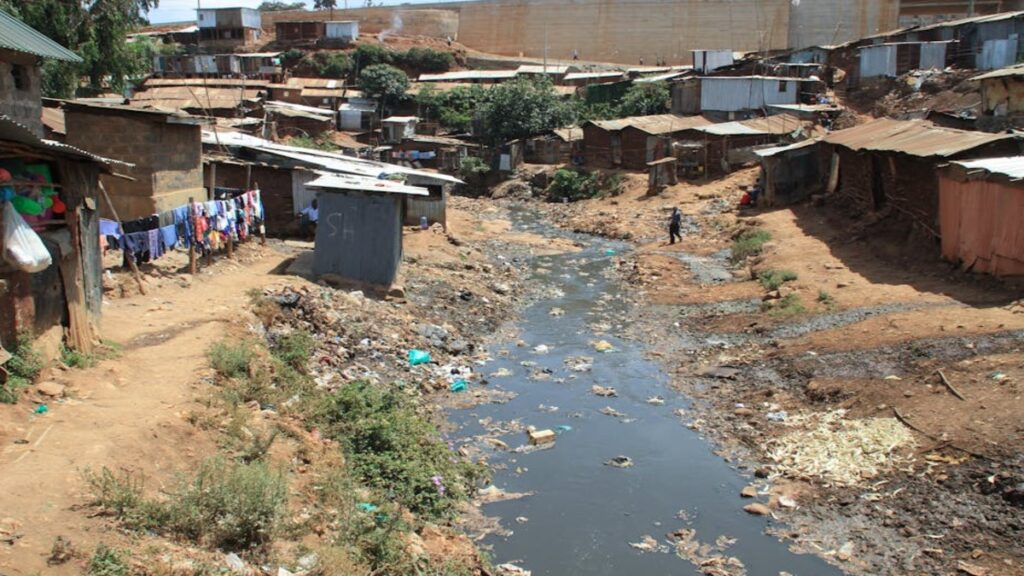In a significant environmental initiative, President William Ruto has announced the Nairobi River Regeneration Project, which aims to clean the heavily polluted river within one year. Speaking during the launch ceremony in Korogocho, Ruto stated, “We are committed to restoring the Nairobi River to its former glory.” He emphasized the importance of this project for public health and environmental sustainability.

Photo of the polluted Nairobi River:photo courtesy
The initiative will employ 20,000 youths from Korogocho and surrounding neighborhoods, providing them with job opportunities while engaging them in the restoration process. Ruto remarked, “This project not only addresses the urgent need for a cleaner environment but also creates jobs for our youth.” He highlighted that the involvement of young people is crucial for fostering a sense of community ownership over local resources.
Starting October 1, 2024, the project will be implemented in phases, with teams assigned to specific sections of the river. Ruto warned, “Those who pollute our rivers will be held accountable,” stressing the need for enforcement to ensure the success of the regeneration efforts. He added that accountability is essential to prevent ongoing pollution from undermining their work.
Additionally, Ruto announced plans to expand this initiative to other major cities such as Kisumu, Mombasa, Eldoret, and Nakuru, potentially creating an additional 40,000 jobs. He stated, “We are committed to making environmental sustainability a national priority,” reflecting the government’s broader vision for urban development.
Local residents have expressed cautious optimism about the project. Many have long been aware of the detrimental effects of pollution on their health and livelihoods. One resident noted, “Cleaning up the river is essential, but we also need to address the root causes of pollution.” Community members believe that their involvement is crucial for ensuring long-term success and sustainability of the regeneration efforts.
The Nairobi River has faced severe pollution due to industrial waste and inadequate waste management systems. Ruto acknowledged this issue, stating, “Restoring the health of our rivers is vital for public safety and ecological balance.” He reiterated that clean rivers contribute significantly to biodiversity and overall quality of life in urban settings.
Ruto’s initiative aligns with global sustainability goals and Kenya’s Vision 2030 development agenda. By prioritizing environmental restoration alongside economic opportunity, he concluded that this project aims to create a cleaner and healthier environment for Nairobi’s residents.
As this ambitious project unfolds over the coming year, it has the potential to reshape not only the landscape of Kenya’s capital but also its future trajectory towards sustainability and resilience. The success of this initiative will depend on effective implementation, community involvement, and ongoing commitment from both government officials and local residents.

















